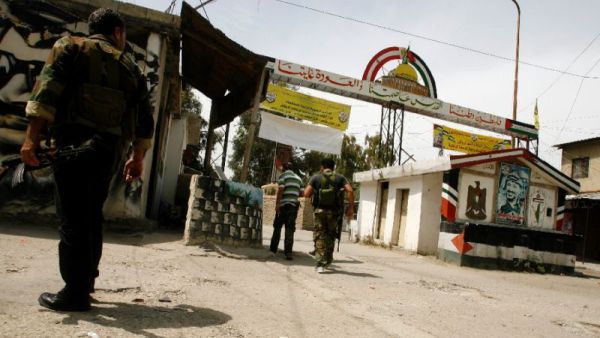Four alleged militants have decided to hand themselves into Lebanese authorities, a security source told The Daily Star Sunday.
The source said Bahaa al-Bernawi and Mahmoud al-Qarout, both Lebanese nationals, who had been hiding in the south Lebanon Palestinian refugee camp of Ain al-Hilweh, handed themselves into military intelligence. They are affiliated with Jund al-Sham and the detained radical preacher Ahmad al-Assir.
Two other Lebanese nationals, Mohammad Shmandar and Yehya al-Orr, also handed themselves into the joint Palestinian security forces in the camp, who will then transfer them to the army after questioning. They too belong to Jund al-Sham and had connections to Assir.
Shmandar is the brother of former Lebanese singer Fadl Shmandar, more commonly known as Fadl Shaker, who is still in hiding inside the camp after allegedly participating in the 2013 clashes against the army in nearby Abra with Assir’s loyalists.
The four suspected militants’ decision to turn themselves in came after negotiations with Islamist and Palestinian factions in Ain al-Hilweh.
Upon being informed of their decision, Jund al-Sham commander in the camp, Haitham al-Shaabi, threatened to kill the four individuals. Shmandr and Orr thus went into hiding before handing themselves in for detention.
The source told The Daily Star that Shaabi, who had given the four men cover in the camp, had been using them for purposes of carrying out attacks against the army and other targets.
Ain al-Hilweh, which has recently been brought back in to the spotlight following allegations that Daesh is using it as a base to carry out future attacks, is home to different extremist factions who might carry out attacks.
While the Palestinian joint security forces operate inside the country’s 12 official Palestinian refugee camps, Lebanese authorities are prohibited from entering under the 1969 Cairo Agreement, and only have checkpoints at the entrances to the camps.
By Mohammed Zaatari
Editor's note: This article has been edited from the source material.








